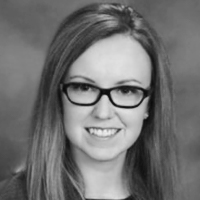>> Dr. Meredith Poore Harold: I am involved in a lot of different activities, but one of the things I do is teach for a local school district. Today's lecture is going to focus on teaching SLPs the basics of speech-language goal writing for school individualized education plans, or IEPs, and the content of the lecture is primarily accessible to those new to speech language pathology or new to the school setting. However, experienced school-based SLPs or SLPs in other settings should also get some good tips from this lecture. Wherever you find yourself in your career, hopefully this will be helpful for you.
Learning Objectives
The learning objectives are that after this course participants will be able to list the required components of speech language IEP goals. They will be able to describe the primary factors behind choosing which speech-language skills to target, and they will be able to identify common missteps when writing speech-language IEP goals.
Components of the IEP
There are many components of an IEP, but in today's lecture, we are only going to discuss those that are most directly related to the goal itself. We are going to assume that you are either in the process of evaluating the child or the evaluation has already been done and passed on to you, or this is a child that you are writing some goals for who is continuing on. We will not go over work processes of an evaluation today. I will say though that whenever I am evaluating a child and intend to write an IEP soon after, I always write my goals and do my evaluation at the same time. I find that it is helpful in making sure that I have the baseline data needed in order to write good goals for the student.
Figure 1 shows a chart with the goal in black in the middle. Underneath the goal, you have objectives. These can also be called benchmarks or progress monitors, and depending on what school district you work in, these might be defined differently. Technically, objectives are small steps toward the goal or small parts of the goal. You have to be able to do this step first and then the student has to be able to do this step and then they are able to complete their goal. These are objectives toward the goal.
Benchmarks and progress monitors, which will sometimes take the place of the objectives, are actually supposed to be measurement points at regular time intervals, like every school quarter. You may see goals that are written as, “In the first nine instructional weeks, the student will do this. After 18 instructional weeks, the student will do that.” I think the most common thing that I have seen, at least in the states surrounding mine, are for them all to be combined into one thing and for the objectives/benchmarks/progress monitors to all be considered the same thing, and basically have time intervals and objectives within them. Be aware of those differences and adhere to whatever the standard is for your own district.

